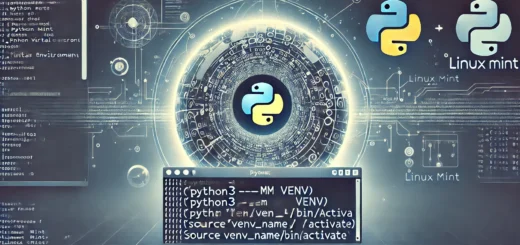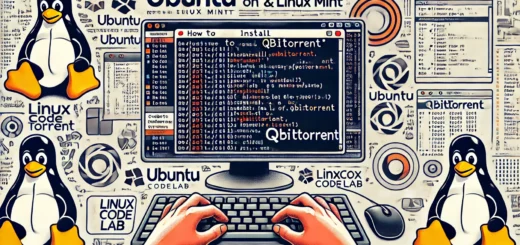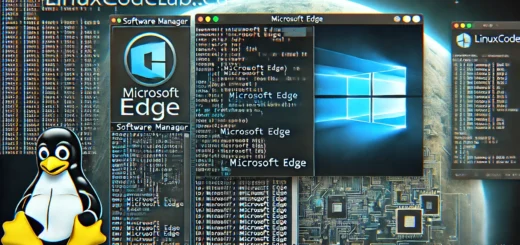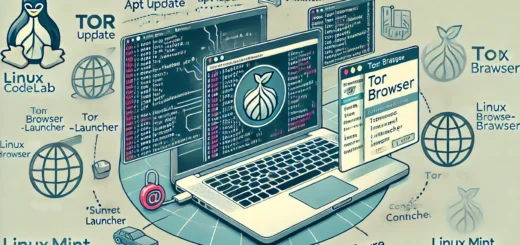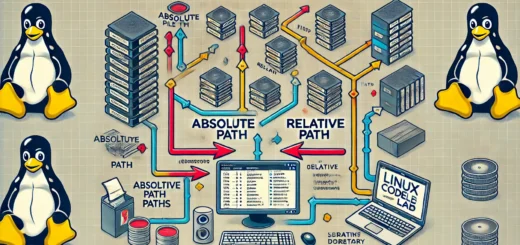Why You Should Learn Linux: An In-Depth Exploration

In today’s increasingly digital world, the operating system you choose can significantly impact your productivity, security, and overall experience. Among the various operating systems available, Linux stands out as a powerful, versatile, and efficient option. While it may not have the same level of mainstream recognition as Windows or macOS, Linux offers unique advantages that make it a compelling choice for many users, especially those in the tech industry. This article delves into why you should learn Linux, covering its benefits, use cases, and the skills it imparts that are valuable in today’s job market.
1. Understanding Linux: An Overview
Linux is an open-source operating system that has been around since 1991. Created by Linus Torvalds, Linux is based on the Unix operating system and has grown to become one of the most widely used OS in the world. Unlike Windows and macOS, which are proprietary software, Linux is free and open-source, meaning anyone can view, modify, and distribute its source code. This transparency is a significant factor in Linux’s security and flexibility.
2. Security and Stability
One of the primary reasons to learn Linux is its reputation for security and stability. Linux is less prone to viruses and malware compared to other operating systems. This is partly due to its open-source nature, which allows a global community of developers to continuously review and improve the code. Additionally, Linux is designed with strong user permissions and security features that minimize the risk of unauthorized access.
Linux’s stability is another significant advantage. It is commonly used in environments where uptime and reliability are critical, such as servers, supercomputers, and embedded systems. Learning Linux gives you access to an operating system that is known for its ability to run efficiently for long periods without crashes or slowdowns.
3. Cost-Effectiveness
Linux is free to download, use, and distribute, making it a cost-effective alternative to proprietary operating systems. This is particularly beneficial for students, startups, and businesses looking to minimize software expenses. Many Linux distributions (distros) come with a wide range of pre-installed software, further reducing the need to purchase additional applications. This cost-effectiveness makes Linux an attractive option for both personal and professional use.
4. Customization and Flexibility
Linux is highly customizable, allowing users to tailor the operating system to their specific needs. From choosing different desktop environments to modifying the source code, Linux provides unparalleled flexibility. This customization extends to the system’s appearance, functionality, and performance. For example, lightweight Linux distributions can be installed on older hardware to breathe new life into outdated computers, while more robust versions can power modern workstations and servers.
Learning Linux teaches you how to navigate and configure an operating system according to your preferences, a valuable skill in an era where technology is increasingly personalized.
5. Open-Source Philosophy and Community
The open-source nature of Linux fosters a strong sense of community and collaboration. By learning Linux, you become part of a global network of users and developers who share knowledge, solve problems, and contribute to the ongoing development of the OS. This community-driven approach not only accelerates learning but also provides opportunities to engage with projects that have real-world impact.
Furthermore, understanding the principles of open-source software can be an eye-opener for those accustomed to proprietary systems. It promotes transparency, innovation, and the freedom to use technology without the constraints of corporate licensing agreements.
6. Career Opportunities and Skill Development
In today’s job market, proficiency in Linux is a highly sought-after skill, particularly in fields like system administration, cybersecurity, and DevOps. Many servers, including those hosting websites, databases, and applications, run on Linux. As a result, system administrators and IT professionals with Linux expertise are in high demand.
Learning Linux also equips you with skills in shell scripting, command-line interface (CLI) usage, and system management. These skills are not only applicable to Linux but also enhance your overall technical proficiency, making you more versatile in various IT roles. Additionally, many cloud services, such as AWS and Google Cloud, rely heavily on Linux, further increasing the value of Linux knowledge in the tech industry.
7. Compatibility with Various Systems and Software
Linux is known for its compatibility with a wide range of hardware and software. It can run on almost any device, from the latest computers to older, low-spec machines. This compatibility extends to software as well, with many programs and applications either natively supported or easily emulated on Linux. Additionally, Linux’s ability to run alongside other operating systems (through dual-boot or virtualization) allows users to benefit from multiple OS environments without sacrificing functionality.
For developers, Linux offers compatibility with a plethora of programming languages and development tools. It is particularly favored for web development, system programming, and open-source project contributions. By learning Linux, you gain access to an environment that is both developer-friendly and conducive to innovation.
8. Learning and Development: A Gateway to Advanced Knowledge
Linux is often considered the operating system of choice for learning and development due to its transparency and control over system functions. When you learn Linux, you’re not just learning how to use an OS; you’re gaining a deeper understanding of how computers work. This includes learning about file systems, process management, networking, and more.
The command-line interface, while intimidating to beginners, is a powerful tool that provides direct access to the system’s core functions. Mastering the CLI can significantly boost your productivity and enable you to perform tasks that are cumbersome or impossible in a graphical user interface (GUI). For those interested in pursuing careers in IT, cybersecurity, or software development, mastering Linux can be a crucial stepping stone to more advanced technical knowledge.
9. Support for Developers and IT Professionals
Linux is often the go-to platform for developers and IT professionals due to its robust support for programming and system management. It offers a wide range of development tools, compilers, and libraries, making it ideal for software development. Additionally, Linux’s strong networking capabilities and built-in tools for system monitoring and management make it a preferred choice for IT professionals managing complex infrastructures.
For developers, Linux provides an environment that supports rapid testing, debugging, and deployment of applications. It is also compatible with containerization technologies like Docker, which are essential for modern DevOps practices. By learning Linux, developers and IT professionals can enhance their workflow and increase their efficiency in managing and deploying software solutions.
10. Community Support and Resources
The Linux community is one of its greatest assets, offering extensive support through forums, documentation, and tutorials. Websites like Stack Overflow, GitHub, and various Linux distribution forums provide a wealth of information and assistance for users at all levels. Whether you’re troubleshooting a problem, seeking advice, or looking for tutorials, the Linux community is always ready to help.
This strong community support makes learning Linux more accessible, as you’re never alone in your journey. The collaborative nature of the Linux ecosystem means that you can also contribute back by sharing your knowledge, helping others, or even contributing to open-source projects.
11. Environmental Impact
Linux’s efficiency and ability to run on older hardware contribute to its environmentally friendly credentials. By using Linux, you can extend the life of your hardware, reducing electronic waste and the need for frequent upgrades. Additionally, Linux’s lightweight distributions consume fewer resources, which can lead to lower energy consumption, particularly in large-scale deployments.
This environmental benefit is an often-overlooked aspect of Linux but is increasingly relevant in a world where sustainability is becoming a priority. By choosing to learn and use Linux, you contribute to a more sustainable tech ecosystem.
12. Personal and Professional Empowerment
Ultimately, learning Linux empowers you to take control of your technology. Whether you’re a casual user looking to explore a new OS, a developer seeking a more efficient environment, or an IT professional aiming to advance your career, Linux offers the tools and flexibility to achieve your goals. It teaches you to approach technology with a mindset of exploration and problem-solving, skills that are valuable both personally and professionally.
By mastering Linux, you gain the confidence to manage your systems, secure your data, and optimize your workflow. This sense of empowerment is a significant reason why so many users advocate for Linux and continue to use it throughout their careers.
Conclusion
Learning Linux is not just about acquiring a new skill—it’s about embracing a philosophy of openness, collaboration, and empowerment. The security, stability, and cost-effectiveness of Linux make it a compelling choice for both personal and professional use. Its customization options, compatibility with a wide range of systems, and strong community support further enhance its appeal.
In the modern job market, where technology skills are increasingly in demand, proficiency in Linux can open doors to a wide range of career opportunities. Whether you’re interested in system administration, cybersecurity, or software development, Linux provides a solid foundation upon which to build your expertise.
Moreover, the process of learning Linux equips you with valuable skills that extend beyond the OS itself, fostering a deeper understanding of computer systems and enhancing your ability to troubleshoot and solve complex problems.
In a world where digital literacy is becoming essential, learning Linux offers a pathway to greater control over your technology, improved professional prospects, and a deeper connection to the global community of open-source enthusiasts. So, whether you’re a tech novice or an experienced professional, investing time in learning Linux is a decision that can pay dividends for years to come.
Thank you for reading the article! If you found the information useful, you can donate using the buttons below:
Donate ☕️ with PayPalDonate 💳 with Revolut

